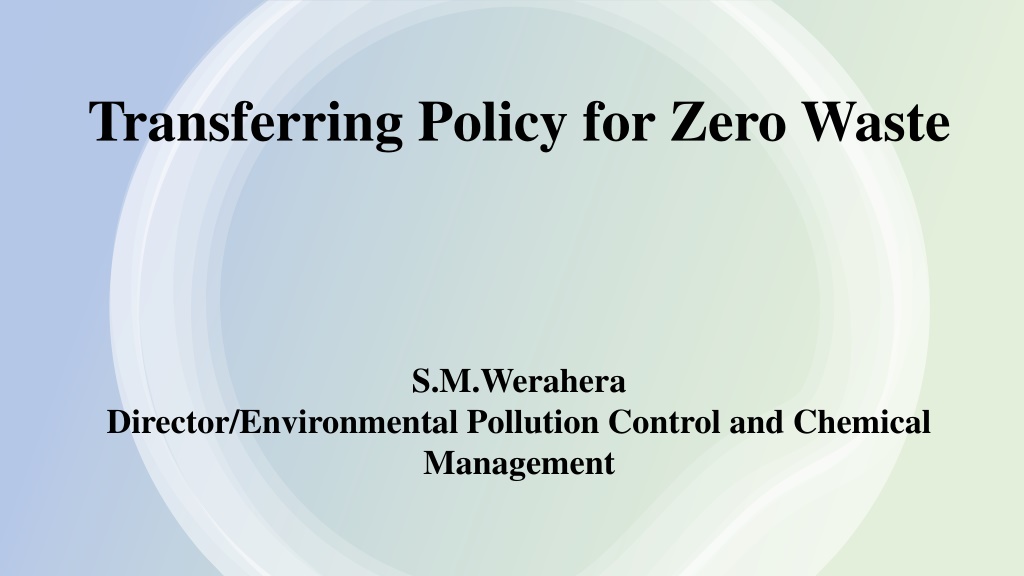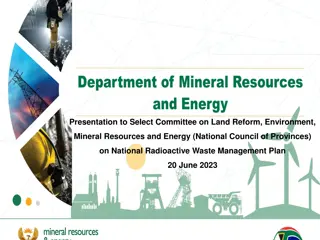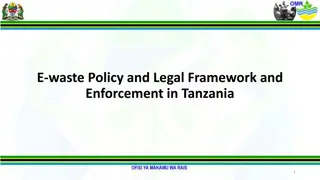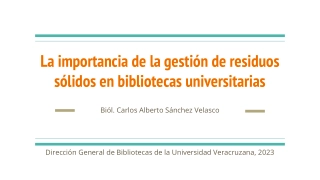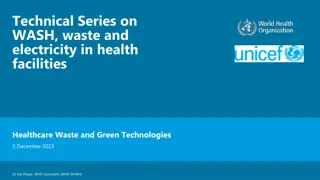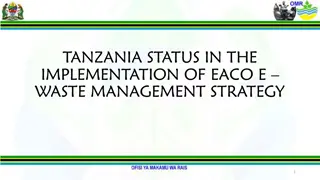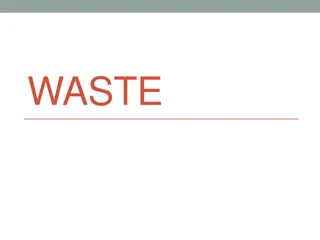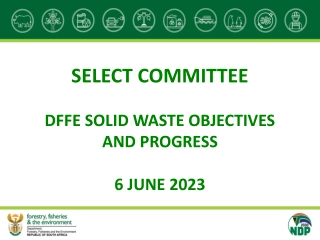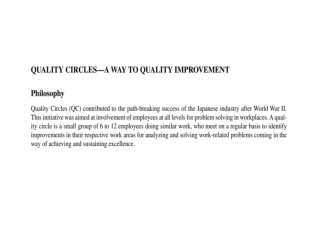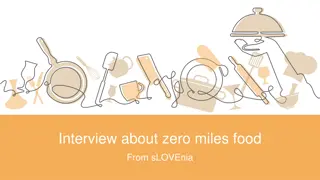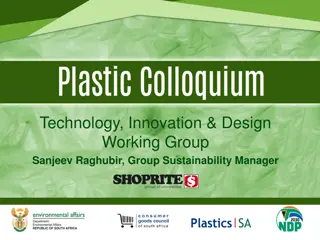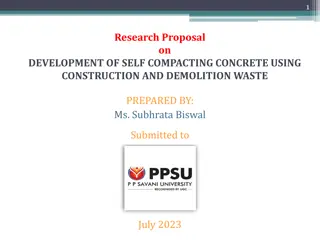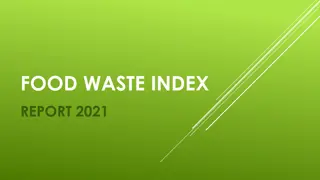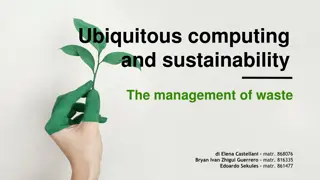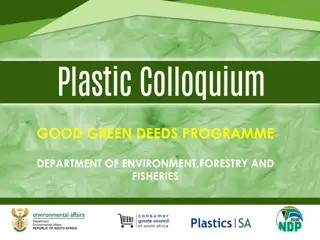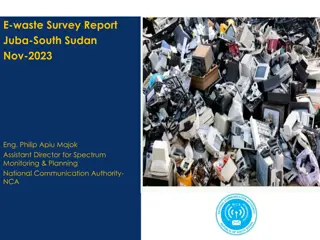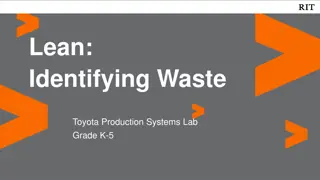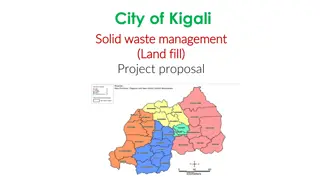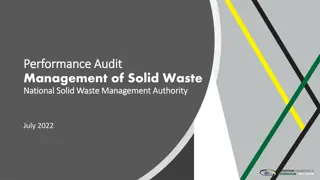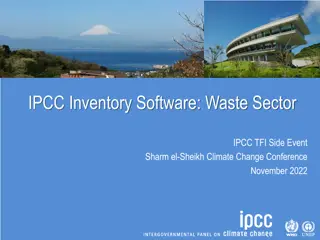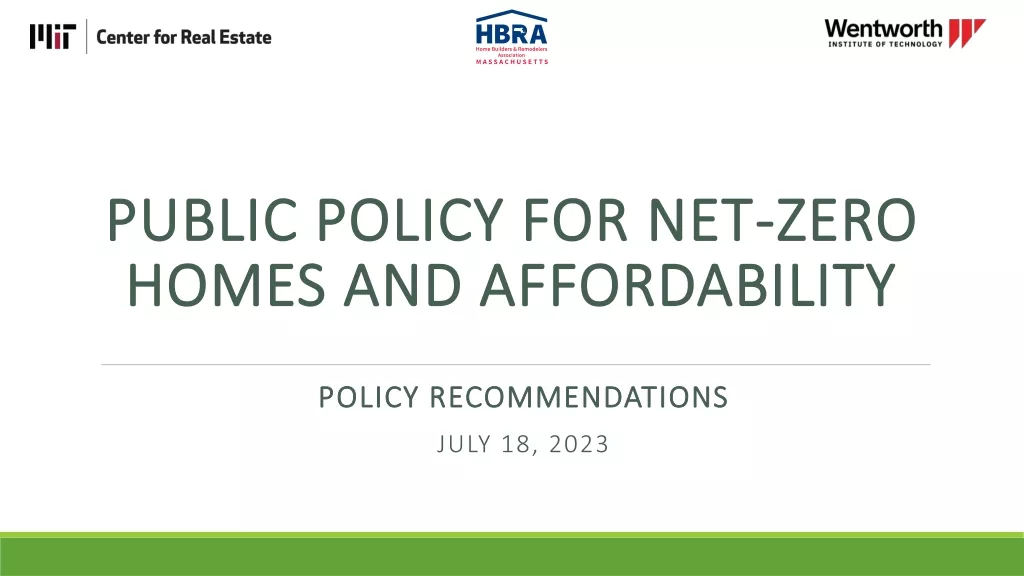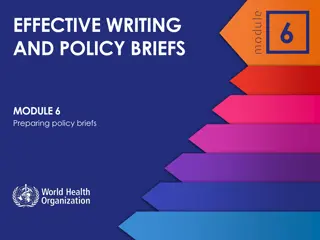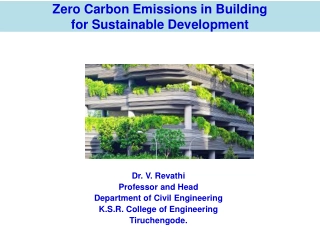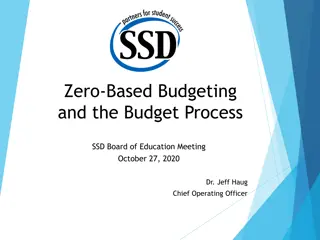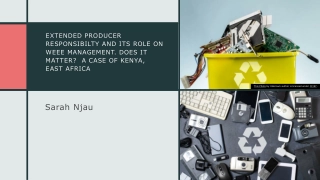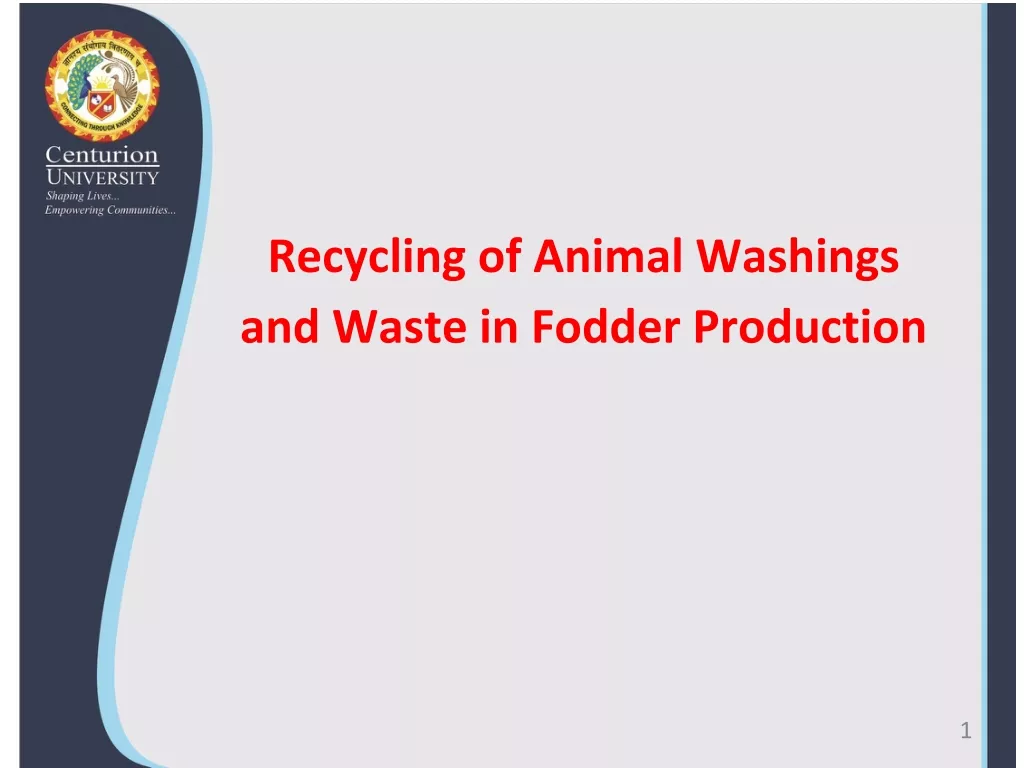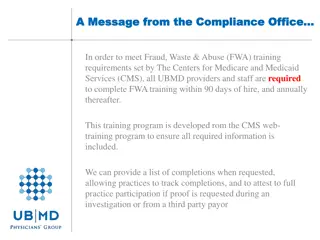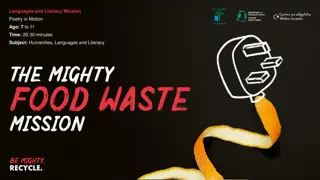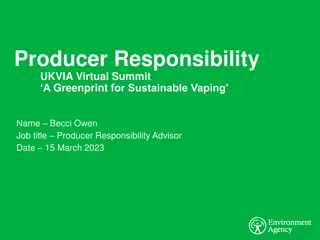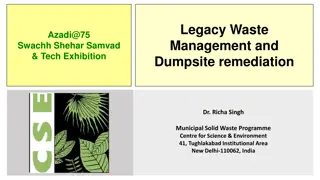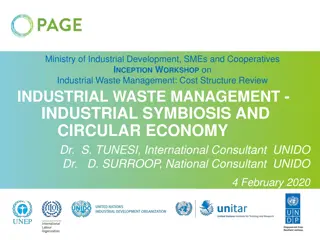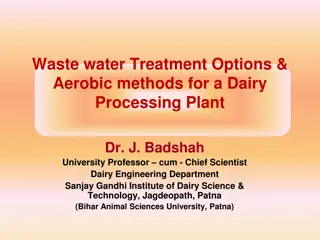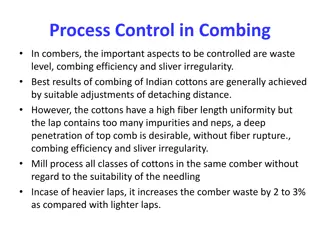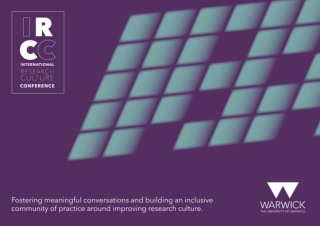Transferring Policy for Zero Waste
The National Waste Management Policy in Sri Lanka focuses on creating an integrated system for managing all forms of waste, including hazardous and municipal waste, to ensure ecological sustainability and sustainable development. The policy emphasizes key principles such as sustainable development, the polluter pays principle, and the transition towards a circular economy. It aims to address short-term challenges while working towards long-term solutions up to 2030, with a strong focus on accountability and efficiency.
Download Presentation

Please find below an Image/Link to download the presentation.
The content on the website is provided AS IS for your information and personal use only. It may not be sold, licensed, or shared on other websites without obtaining consent from the author. Download presentation by click this link. If you encounter any issues during the download, it is possible that the publisher has removed the file from their server.
E N D
Presentation Transcript
Transferring Policy for Zero Waste S.M.Werahera Director/Environmental Pollution Control and Chemical Management
National Environment Policy Safeguarding the Environment while ensuring ecological sustainability for the Present and the Future Ensure sustainable use, management and protection resources to create enabling conditions for sustainable development in Sri Lanka through a well defined policy framework. of environmental
Policy Thematic Areas Policy Goal Relevant PTA An integrated System for solid, liquid and gaseous waste management covering all local government area in the country will be in place for effective management of general and all forms of hazardous waste including household and municipal waste, construction and demolition waste, e- waste etc. Pollution Prevention Control and waste Management
Key Policy Principles 3.1 Sustainable Development and Green Economy 3.2 Polluter Pay, Beneficiary and the Compensation 3.3 Life Cycle, Circular Economy and 3R 3.4 Safe Minimum Standards 3.5 Precautionary Principle 3.6 Rewards, Stewardship and Reciprocity 3.7 Equity, Inclusiveness and No One Left behind 3.8 Efficiency in Resource Use 3.9 Planetary Boundaries 3.10 Common but Differentiated Responsibilities 3.11 Public Trust Doctrine 3.8 Efficiency in Resource Use
National Policy on Waste Management (2020) Over arching policy that cover all types of wastes was included in 2020 replacing former policies on Solid Waste Management.
National Policy on Waste Management (2020) Past (2000, 2008) on Solid Waste Management Present on Waste Management covering all forms of waste Future (towards a fully fledged Circular Economy)
National Policy on Waste Management (2020)
To comprehensive directions for waste management in the country covering all forms of wastes to meet the acute short term challenges in line with medium and long term sustainable solutions up to 2030 with entrusted accountability. provide coherent and Goal
Objectives 1. To make all the citizens and institutions legally responsible. 2. To sensitize all continuously on the need to be accountable and responsible to manage wastes individually and collectively by preventing and minimizing its generation moving beyond compliance. 3. To ensure availability of facilities and infrastructure for treatment and final disposal of waste in an environmental sound manner assuring responsible, accountable and sustainable operation and maintenance. 4. To make every effort to minimize final disposal of waste by retaining its resource utilization value throughout the life cycle.
5. To enhance effectiveness and efficiencies of existing waste management systems/practices and promote new systems with appropriate technology and practices. 6. To improve efficiencies and effectiveness of existing appropriate markets, promote new markets with appropriate innovative technologies and partnerships, and facilitate holistic integrated waste management systems/practices. 7. To reduce risks to public health, environment, and ecosystems and improve occupational health & safety of waste handlers. 8. To enhance effective partnerships to meet international obligations in waste management moving beyond compliance.
1. Municipal solid waste 2. Packaging waste 3. Industrial waste 4. Construction and Demolition waste 5. Healthcare waste 6. Electrical and Electronic waste (e- waste) 7. Radio-active (solid) waste 8. Marine waste 9. Food, Agriculture and Livestock Waste 8.2.1 Solid waste
1. General (covering all forms of liquid waste) Sewage Industrial waste, Chemical waste, Leachate and Vehicle Service station effluent Contamination of runoff with petroleum residues, healthcare waste effluent, agrochemicals and other emerging contaminants Food handling establishments and Kitchen waste (grey water) Radioactive (liquid) waste. 2. 3. 8.2.2 Liquid waste (16) 4. 5. 6.
8.2.3 Gaseous waste Gaseous waste
1. National, Provincial and Local Authority levels 2. Public and Private sector 3. Community and other Non- governmental organizations 4. Building partnerships 5. Clean up and Waste Management at Disaster Situations 8.4 8.4 Policy statements Policy statements related to related to Institutional Institutional mechanisms, mechanisms, Coordination and Coordination and Communication Communication (18) (18)
Proposed tools under Amendment of National Environmental Act Government role in Transferring Policy for Zero Waste will be based on following two principles. In this context, Government will facilitate the private sector investment for waste management. Extended Producer Responsibility Load Base Charges
